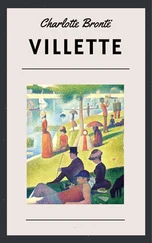“Doing what things?” said Charlotte.
“What things? The best thing is being a Bad-Ass Rhodie, capital B, capital A, capital R.”
Charlotte said, “What’s a—what’s that?”
“The Bad-Ass Rhodie…that’s an idea that just sort of developed after the end of the cold war, or right after the Gulf War, the first one, in 1991, I guess you could say. Up to then students like us—you know, students interested in ideas and concepts—which are what really move the world, not politics or plain military power, okay?—I mean, like Marxism—I mean, here’s this guy, this alien, this guy from Austria nobody ever heard of, sitting by himself in the British Museum in the 1880s writing a like really abstruse book on economics called Das Kapital, and that book, that idea, is what creates the history of the entire twentieth century!”
His eye strayed to another girl who had that sweat stain…that lubricious line…down the crack in the back of her sweatpants…
He grinned sheepishly. “Now I can’t even remember what I was saying.”
“You were talking about ‘students like us’? After the Gulf War in 1991?” Nine-teen niney wuh-un?
“Oh, yeah. Up ’til then, students like us used to just go to graduate school and become college teachers. But after that, a new type of intellectual comes on the scene: the bad-ass. The bad-ass is sort of a rogue intellectual. A bad-ass doesn’t want to do anything so boring and low-paid and like…codified…as teaching. The bad-ass types, they’re the types who don’t want to spend their twenties, they don’t want to spend the prime of life as a graduate student cooped up in some cubicle up in the stacks of the library. You’re an intellectual, but you want to operate on a higher level. This is a new millennium, and you want to be a member of the millennial aristocracy, which is a meritocracy, but an aristo-meritocracy. You’re a mutant. You’re an evolutionary advance. You’ve gone way beyond the ordinary ‘intellectual’ of the twentieth century. You’re not just some dealer in ideas who’s content to sell the ideas of a Marx or a Freud or a Darwin ora…a…a Chomsky…to the unenlightened.” He didn’t seem all that sure about Chomsky. “Those guys weren’t transmitters for other people’s ideas. Each one of them created a matrix, a mother of all ideas. That’s what a Millennial Mutant aims for. This is a new millennium, the twenty-first century is, and you’re going to create the new matrixes yourself, or matrices I guess it is, if you see what I’m saying?”
No, said the blank look the girl gave him.
“All right. You’re not going to be a graduate student, which to most people means some kind of geek or creep, and you’re not going to teach, which means some poor old guy who ends up with humped-over shoulders—you know the kind of professor I mean? Who wants to end up as this like…pathetic object of pity? So in college you don’t sign up for a conventional major. If you’re at Dupont, you do what I did. You go into the Hodges Fellows Program and you create your own major, along with a faculty adviser. I’m not bragging, because it’s not all that hard to do. But I have to tell you, I came up with the perfect title for my Hodges: ‘The Intellectual Foundations of Globalization.’ ‘Global’ is a key concept. It’s a big plus if you show an altruistic interest in the Third World. Tanzania is very hot right now. East Timor is not bad. Haiti will do, but you haven’t like…you haven’t like gone deep enough into the Third World. You know what I mean? It’s too easy to get to Haiti. I mean, you can take a plane from Philadelphia and be there in an hour and a half, that sort of thing.”
“What do you mean, ‘get there’?” said Charlotte.
“You actually go there. You go to Tanzania or some other country that’s hot for your junior year abroad. You never pick Florence or Paris or London, least of all London. It has to be the Third World, and you have to show what they call ‘service opportunity leadership.’ I went to Kenya, but it turns out everybody has this idea Kenya’s too civilized. I taught English in a village out in the re-mote, out in the bush about four hours west of Nairobi by pickup truck, and I mean there wasn’t a ballpoint pen within a fifty-mile radius, much less a word processor, and I got malaria like everybody else in my village. They gave me the best house they had, this little brick hut with two windows, since I was the teacher come all the way from America, but it didn’t have any screens—so I got malaria like everybody else—and I come back and other Mutants are telling me I made a bad choice. Kenya is too civilized. If I had it to do over, I’d do a project like a documentary photo study of Tanzania, with text, something like that.”
Adam detected a touch of reproof in the look Charlotte was giving him. Sure enough, she then said, “You went—people go all the way to Africa just to look good?”
“No, no, that’s not what I’m saying,” said Adam. It was time to back out of this particular dead end—and it had seemed so light and captivating and sophisticated while he was saying it. “Not at all. I mean if you don’t have a genuine interest, you don’t even think about anything like this. You don’t live in a brick hut with no screens and let toxic insects have their run of your hide. But it’s like anything else you want to do. There are strategies…and there are strategies.” He shook his head several times. “No, no, no, don’t get me wrong. But if you’re a bad-ass, you have a specific goal. You want to get a Rhodes scholarship. That’s the goal, and there are only thirty-two of them awarded in the whole country. If you get one, you go to Oxford and get a D.Phil. degree, and then it’s like magic. Every door opens. You can go into politics like Bill Clinton or Bill Bradley. Remember Bill Bradley? You can be a policy wonk like this guy Murray Gutman, who advises the president on demographics and cultural shifts. He’s only twenty-six, but—he’s your classic Bad-Ass Rhodie. You can write, like this guy Philip Gourevitch who does all these long pieces for The New Yorker on Africa and Asia or this guy Timmond who did the big coffee-table book on African leaders. I mean, Africa’s perfect, especially when you think about Cecil Rhodes’s idea when he set up the Rhodes scholarships. The idea was to bring bright young American barbarians over to England and make them citizens of the world. He wanted to lift them up to a higher plane and extend the reach of the British Empire with its American cousins in tow. The British Empire is gone, but a Rhodes still lifts you to a higher plane. You’re not doomed to being some obscure college teacher. You become a public intellectual. Everybody talks about your ideas.”
Charlotte said, “There are only thirty-two Rhodes scholarships?” Adam nodded yes. “Well, golly, that’s not very many. What if you’re a bad—what if that’s what you’re counting on and you don’t get one?”
“In that case,” said Adam, “you go after a Fulbright. That’s a pretty long way down from a Rhodes, but it’s okay. There’s also the Marshall Fellowships, but they’re the last resort. I mean that’s bottom-fishing. During the cold war a bad-ass couldn’t’ve accepted a Fulbright or a Marshall, because they’re government programs, and that would’ve made you look like a tool of imperialism. A Rhodes was okay because there was no British Empire left, and you couldn’t be accused of being a tool of something that wasn’t there anymore. Today the only empire is the American empire, and it’s omnipotent, and so if you don’t get a Rhodes you have to make use of it, the new empire. It’s okay as long as you’re using it for the sake of your own goals and not theirs.”
“Theirs?” said Charlotte. “What do you mean, theirs?”
Читать дальше










